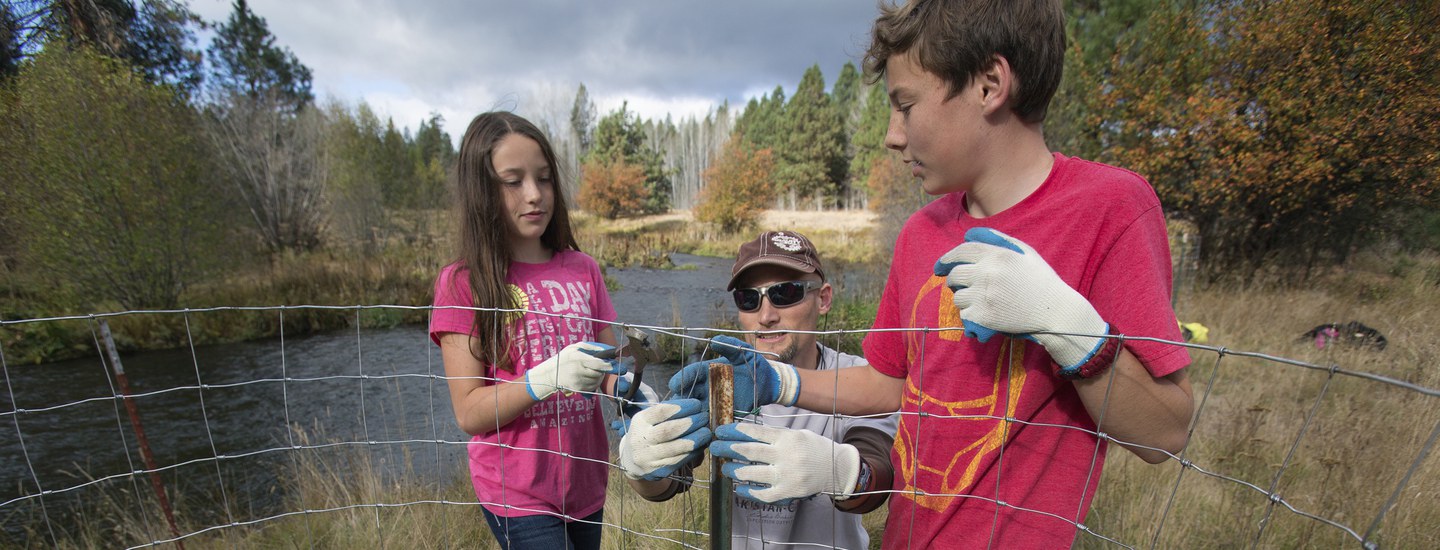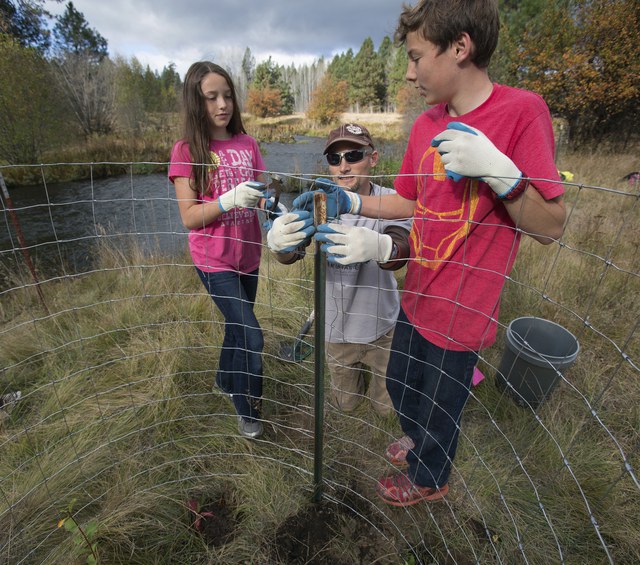Climate change is the conservation challenge of our era. It affects the Land Trust’s core mission of conserving and caring for the lands and waters that sustain Central Oregon, so local communities and the natural world can flourish together for generations to come.
In 2017, the Deschutes Land Trust created our first climate change strategy to help guide the Land Trust's work in ways that account for and respond to the impacts of climate change on Central Oregon. Since then, we’ve been working to implement this strategy as we acquire new land, manage the land we already protect, and engage the community in our work.
Today, climate-responsive conservation, stewardship, and community engagement are woven into all of our plans, projects, and programs. We are committed to following the guiding principles below to mitigate and adapt to the impacts of climate change on our protected lands and in our community, now and into the future.
Deschutes Land Trust's Guiding Principles for Climate-responsive Conservation:
- We recognize the interconnectedness of all actions. Climate-responsive conservation cannot happen in isolation, and all decisions will have implications for other social, ecological, and/or economic outcomes.
- We prioritize the functionality of ecological processes and systems rather than specific habitats or species.
- We will strive to engage a variety of relevant stakeholders to iteratively and regularly revisit strategies and approaches. Climate change action is necessarily experimental, dynamic, and imperfect.
- We will strive to understand and respond to local concerns and communities while keeping national and global contexts in mind.
- We know that, just as the impacts of climate change are not immediately discernible, climate-responsive conservation will not yield immediate results or solutions. However, this by no means diminishes the importance of acting now.
- We will use the best available science to guide all conservation and stewardship approaches to adaptation and mitigation.
Want to learn more about climate-responsive conservation?
Dig deeper into the two main ways the Land Trust can address climate change, mitigation and adaptation.
- Mitigation means reducing our human contributions to greenhouse gases. The Land Trust can help mitigate the effects of climate change on our communities by reducing our contributions of greenhouse gases, and we by removing CO2 from the atmosphere. Learn more about our mitigation strategy.
- Adaptation means making adjustments in our systems—human and natural—in response to current and future climate impacts. The Land Trust can help adapt to climate impacts by helping conserve nature’s stage, and by helping make our natural systems strong. Learn more about our adaptation strategy.
Learn more:
- What is climate change?
- How is climate change affecting Central Oregon?
- How can I help reduce the impacts of climate change?


